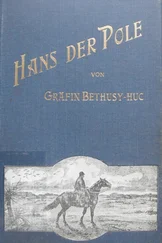Valeska Bethusy-Huc - The Eichhofs - A Romance
Здесь есть возможность читать онлайн «Valeska Bethusy-Huc - The Eichhofs - A Romance» — ознакомительный отрывок электронной книги совершенно бесплатно, а после прочтения отрывка купить полную версию. В некоторых случаях можно слушать аудио, скачать через торрент в формате fb2 и присутствует краткое содержание. ISBN: , Жанр: foreign_antique, foreign_prose, на английском языке. Описание произведения, (предисловие) а так же отзывы посетителей доступны на портале библиотеки ЛибКат.
- Название:The Eichhofs: A Romance
- Автор:
- Жанр:
- Год:неизвестен
- ISBN:http://www.gutenberg.org/ebooks/35311
- Рейтинг книги:3 / 5. Голосов: 1
-
Избранное:Добавить в избранное
- Отзывы:
-
Ваша оценка:
- 60
- 1
- 2
- 3
- 4
- 5
The Eichhofs: A Romance: краткое содержание, описание и аннотация
Предлагаем к чтению аннотацию, описание, краткое содержание или предисловие (зависит от того, что написал сам автор книги «The Eichhofs: A Romance»). Если вы не нашли необходимую информацию о книге — напишите в комментариях, мы постараемся отыскать её.
The Eichhofs: A Romance — читать онлайн ознакомительный отрывок
Ниже представлен текст книги, разбитый по страницам. Система сохранения места последней прочитанной страницы, позволяет с удобством читать онлайн бесплатно книгу «The Eichhofs: A Romance», без необходимости каждый раз заново искать на чём Вы остановились. Поставьте закладку, и сможете в любой момент перейти на страницу, на которой закончили чтение.
Интервал:
Закладка:
The doctor laid his own cool, strong hand upon them. "Robert is not here," he said; "be quiet and calm."
She gazed at him, the eager, distressed expression fading from her eyes, her face growing more natural and placid. "Oh, it is you!" she said, with a sigh of relief, sinking back upon her pillows. "I have had such a terrible dream! How kind of you to come to me when it is so late!" she added, softly. "How can I ever thank you!"
"Hush, hush, child! you must not talk so much, and there is no occasion for any gratitude. It is a doctor's duty to look after his patients."
She gazed at him with an intensity of fervour in her gleaming eyes. "I shall not give you much more trouble," she said; "but I have something to say to you," she added, entreatingly; "tell Marianne to go out of the room."
The doctor motioned to the woman, who left the room, and then turned to the invalid, saying, "But I cannot let you talk much; you must say only a very few words."
A sad, weary smile passed over her face. "Nothing now can either harm or help me. You know as well as I do that I shall soon be at rest."
The doctor would have interrupted her, but she begged him by a look to let her speak, and he mutely inclined his head.
"I know that the end is near, and I am so glad of it," she said, softly; "but before it comes I want so much to thank you, – thank you from my very heart, and to beg you to think of me kindly when I am no longer here. Tell me that you have forgiven me. Although you have shown me your forgiveness in a hundred ways, I long to hear your lips utter it."
"Hedwig," he murmured, and his lips quivered; for a moment the strong man was unable to utter a word.
"Have you quite forgiven me?" she asked again, looking eagerly up at him.
"Utterly and entirely," he replied, controlling his emotion.
"Ah, how happy you make me! My suffering has atoned for my sin against you. Ah, how I thank you, – I thank you!" She paused suddenly and put her handkerchief to her lips.
The doctor sprang up and called aloud to Marianne, as he raised the invalid's head from the pillows and supported her in his arms.
She opened her eyes and gazed into his. "Friedrich," she whispered. But a crimson stream choked the words she would have spoken. A spasm passed through her frame; she threw back her head. All was over. The doctor gently laid her back upon the pillows, and, kneeling beside her, pressed his lips upon the cold little hand that lay motionless on the coverlet.
Marianne was not in the next room; she did not appear in answer to the doctor's call, and her presence was not needed.
A moment afterwards he arose, covered the quiet figure, so that only the pale, calm face was visible, and then sat down beside the bed, riveting his gaze upon the marble features as if to call them back to life, – the life that now informed them in his mind's eye. Yes, she stood vividly before him, a little fair-haired girl, the daughter of a neighbouring tradesman, his playfellow through many childish years. And then she was again the blushing, still childlike girl, who replied to his passionate wooing by a low 'yes,' breathed almost inaudibly as she hid her face on his breast. Then came a change in the picture. The petty tradesman, her father, embarked in a lucky speculation and suddenly achieved wealth. And the girl was clad in costly silks and velvets, and lived in a showy villa surrounded by luxurious gardens, – a fit home for a parvenu millionaire, where the daughter, but lately so shrinking and modest, suddenly learned to talk and laugh loudly and to bandy pert jests with the young fortune-hunters that thronged about her. She grew to delight in their homage, and would have missed it had it been withdrawn. She never was haughty or arrogant towards the friend of her youth, but she began to suppress a yawn when he spoke of his love. She had just begun to live, she said, and wished to enjoy for a while. They had deferred any public announcement of their mutual affection until Nordstedt should have passed the coming examinations, and he left her to her new-found enjoyment, coming but seldom to visit her. The day before he was to go up for examination he went to her house, and was told that she had been betrothed the week before, and was paying some visits of ceremony. He turned away, and a few steps from the house passed her carriage returning home. He saw her smile, saw the handsome faded face of her lover, and the satisfaction in her father's air. He was proud of the wealthy son-in-law, who had, moreover, lately become his partner. Nordstedt hurried along the street where he had so often walked with his head and heart filled with dreams of future happiness, and from that day her name never passed his lips. Thenceforth he belonged only to his books and his patients. The years went by. He knew that her father had become bankrupt, and that her husband had suffered some losses in consequence. But he did not know how soon the remainder of his property had been lost or squandered. Without either the capacity or the desire to exert himself, the man had sunk into depths of abject poverty, until at last his wretched wife was discovered by chance by the lover of her youth in a garret room, the victim of a mortal disease. He did not now dwell upon the care that he had from that moment lavished upon the first, the only woman whom he had ever loved; pictures of a distant past floated too vividly before him, and the quiet face on the pillow was to him as a last greeting from his youth, the faint, fading shadow of what once had been. Youth and love, how far away and unattainable they were now! Lost, gone forever. He bade a long farewell to that pale face and to all of which it spoke to him.
At last he arose, and, walking slowly and like one in a dream, left the room, and, calling Marianne, gave her directions as to the decent burial of his lost love. And as the street door closed behind him and the black night received him, the strong man shivered. "She is dead, and Walter is gone," he muttered to himself. "It is my lot to be a lonely man."
CHAPTER VII.
UNEXPECTED
Summer had gone, and autumn was tinging forest and field with crimson and gold.
The Freiherr von Hohenstein was driving in a little open vehicle through his forest, – that is, over that part of his estate which a few years previously had been covered with fine old trees, but where now some labourers were removing a few stumps, while at intervals a solitary giant of the woods seemed to tell of his brothers, certain of whom were now sailing the seas, while others upheld the roofs of city dwellings.
The Freiherr von Hohenstein looked gloomily about him upon the desert plain, dotted here and there with small spots of future forest in the shape of low scraggy shrubs, and found as much food for vexation in the quick disappearance of the former forest as in the slow growth of the young trees. He was powerless, however, to alter either of these annoying facts, and he sighed heavily as his thoughts wandered oddly enough, and yet by a strictly logical train of ideas, from the forest-trees to his son Hugo, who had not indeed any personal connection with ship-builders and carpenters, but who could have told a great deal about the money paid by them for the trees.
"The deuce knows how it is all to end!" the Freiherr growled to himself. "Every year living is dearer and the income smaller; everything to be bought goes up in price, everything to be sold comes down. It is enough to drive me mad!"
Such had now for some time been the usual conclusion of the Freiherr's reflections, and after these deep-drawn sighs he was wont to fall into a still gloomier revery, in which he arrived at no single clear idea except that fate was using him with singular injustice in so complicating his financial affairs from year to year.
Читать дальшеИнтервал:
Закладка:
Похожие книги на «The Eichhofs: A Romance»
Представляем Вашему вниманию похожие книги на «The Eichhofs: A Romance» списком для выбора. Мы отобрали схожую по названию и смыслу литературу в надежде предоставить читателям больше вариантов отыскать новые, интересные, ещё непрочитанные произведения.
Обсуждение, отзывы о книге «The Eichhofs: A Romance» и просто собственные мнения читателей. Оставьте ваши комментарии, напишите, что Вы думаете о произведении, его смысле или главных героях. Укажите что конкретно понравилось, а что нет, и почему Вы так считаете.












